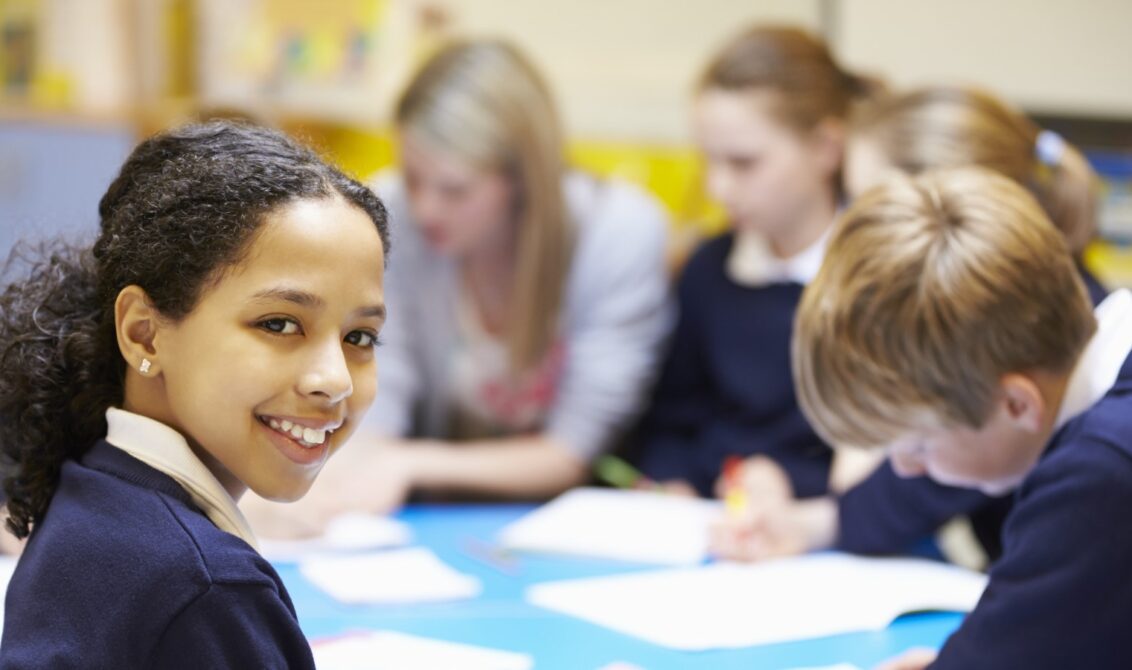
Technological advancement, climate change and global interconnectedness has changed the way we work and live together – and a challenge for today’s school leaders is to ensure students are prepared to adapt to this change. We’re pleased to be able to support schools with a new global citizenship curriculum launching in 2021.
Pearson’s Global Citizenship 5-16 programme is unique in that it combines a fully supportive curriculum, a wealth of teaching guidance, a suite of printed and digital resources and quality assessments at the end of each key milestone. Starting from the earliest stages, it will ensure that your students acquire a wide range of transferable skills and develop the knowledge to succeed in the Pearson Edexcel International GCSE (9-1) Global Citizenship.
As a continuous learning programme, it will encourage learners to delve into a range of important current affairs and technology issues, comprehend how to investigate across borders, understand different perspectives, address discrimination and human rights violations, and learn about the importance of sustainability. Above all, the curriculum encourages students to think globally and act locally, and develop those all-important skills that help them think outside-the-box.
The key topics for teaching global citizenship
1. Social justice and equality
The fight for social justice and equality is a major theme across the globe. Bringing this topic into the classroom enables conversations about these issues and encourages your students to voice their concerns about unjust situations. It can also give rise to discussions around the need for equal treatment of individuals regardless of their race, gender, religion, sexuality, disability, and any other personal preferences or lifestyle choices.
The core themes within this topic in our Global Citizenship 5-16 programme are justice and injustice, wealth and poverty in society, equality of opportunity, challenging injustice.
2. Identity and diversity
As we become more interconnected, our ability to understand and accept other cultures, races, religions, and values is incredibly important. Teaching your learners about identity and diversity helps raise their awareness of how diversity is dealt with around the world. It can also encourages them to discover their own identity by asking the question “Who am I?”
The other themes within this topic in our Global Citizenship 5-16 programme are humankind: all equal; all different and challenging prejudice and discrimination.
3. Globalisation and interdependence
The dictionary definition of interdependence refers to two or more countries that impact and depend on one another. Globalisation is defined as the economic, social and political integration of people across the planet. To navigate life and work in the 21st century, it’s important for your learners to be aware of both in terms of the impact they will have on them and how they can take their place in a globalised and interdependent economy.
Within this topic in our Global Citizenship 5-16 programme, learners will examine people and places around the world, global trade, ethics, production and consumption, global wealth and poverty, information, technology and communication and global health, food and wellbeing.
4. Peace and conflict
This can be a sensitive subject to teach in the classroom but approaching it constructively and teaching learners about conflict and encouraging them to analyse different global conflicts can demonstrate to them that wars can sometimes be peacefully resolved.
The themes explored as a part of this topic in our Global Citizenship 5-16 programme include conflicts in the community, resolving conflicts peacefully and conflicts around the world.
5. Human rights
Teaching human rights from a young age encourages your learners to demand a world without discrimination, inequality and prejudice. In this topic, students are introduced to the fundamental laws and concepts that make up human rights, which promote individual and collective rights and freedoms. The aim is to make students aware of their own rights, and the rights of others around the world.
The core themes that are covered in this topic in our Global Citizenship 5-16 programme include understanding rights, the violation of rights, refugees, asylum seekers and internally displaced people and human rights defenders.
6. Power and governance
Teaching your learners about power and governance in the classroom will introduce them to the foundations of political thought, structures of power, authority and the ingredients for good governance. Exploring these topics through a global lens helps them understand how different groups and nations approach power and governance – as well as the role that citizen participation plays within a democracy.
Within our Global Citizenship 5-16 programme, the core themes that form this topic include good governance and participation and inclusion.
7. Sustainable development
Climate change is one of the most pressing issues of our time. Now is the time to come together to protect our planet – and teaching your learners to take action, and demand others do so, is crucial. The goal of this topic is to encourage students to work towards a more sustainable future.
The themes covered in this topic as part of our Global Citizenship 5-16 programme include planet Earth and its future, connecting with nature, biodiversity and habitat loss, climate change and energy, pollution, waste and recycling.
Tips for teaching sensitive subjects
Some of these topics may be both thought-provoking and sensitive for learners so it is important to approach them with care. How you do this will depend on the context of each classroom; you know your learners best and will understand when to avoid any sensitive issues.
However, there are some simple tips below to ensure you teach a global citizenship curriculum with consideration:
- Acknowledge the situation – talk to your students calmly about the news story, idea, event or issue in question and avoid any disturbing details with younger learners.
- Focus on the facts – make sure only the facts are discussed and address and acknowledge any gossip, rumours or opinions that arise in class conversations that may not be true.
- Avoid sharing personal views – it is crucial not to persuade students to think a certain way. Rather, encourage individual thought. Allow students to create a balance of views instead of influencing their opinions.
- Monitor class discussions – keeping a close eye on the discussion or debate and ensuring everyone’s opinions are well thought through, balanced and expressed in a polite and calm manner will ensure no one is left feeling ostracised, singled out, unheard or dismissed.
Further reading
For more on teaching sensitive subjects in the classroom, read our article on how to reassure students when talking about difficult topics.
Find out more about our our Global Citizenship 5-16 programme.
Watch The Big Think webinar on ‘The role international schools can play in saving the world – global citizens to the rescue!’.
Like what you read and want to receive more articles like this direct to your inbox? Subscribe to our blog and we’ll send you a fortnightly digest of the blog posts you may have missed, plus links to free resources to support your teaching and learning.

